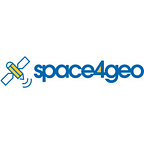RGEO —the EO4GEO partner that leads digital geo-media in modern school education
Short description of your organisation
To see the world with different eyes — that is the motto of the GIS-Station, the Competence Centre for Digital Geomedia of the Research Group for Earth Observation (rgeo) at the Heidelberg University of Education. The Competence Centre integrates digital geomedia into school lessons. It is, in this form, a unique institution for further education for teachers and student teachers, as well as an out-of-school learning place for students throughout Germany. The training programs are scientifically accompanied by the Department of Geography at the Heidelberg University of Education.
Can you give us some examples of the work that you have done to help with EO/GIS Skills?
The GIS-Station offers seminars, workshops, lesson units, and concepts across the topics remote sensing (satellite images), geographic information systems (GIS), and mobile geotools (GPS, etc.). The focus of the diversified program offered is on the methodological and didactical embedding of digital geo-media in modern school education. In addition, the GIS station offers multiplier training for teachers of all school types.
After completing the training, the teachers know the methodological basics and can create their own teaching units with the help of digital geomedia and use them successfully in school. In addition, rgeo operates the learning platform Geo:spektiv, which offers young people various multimodal learning modules on current environmental and spatial topics. As an adaptive implementation, the platform supports individual learning by adapting the content and level of difficulty individually to the abilities and needs of the learners. By linking to the web-based remote sensing application BLIF 2.0 (Blickpunkt Fernerkundung), students can independently perform analyses of satellite image data, which simultaneously promotes competence in dealing with the digital geomedium “satellite image”.
What are your future plans to support EO/GIS Skills?
One of our goals is to promote mobile learning. The project Geo:spektiv2GO for example aims to link the use of digital geomedia on the computer with problem- and action-oriented work in the field. In this way, remote sensing methods in the geosciences and environmental sciences can be realistically reproduced. The project focuses on the conceptual development, implementation, testing, and dissemination of an app that enables mobile location-based learning and working with remote sensing data in the field. In addition, rgeo is currently building a Cyber Classroom.
The digital learning environment consisting of virtual reality (VR) learning modules is designed to create deeper insights into our learning content. Moreover, the GIS station is to be supplemented by a virtual teaching-learning laboratory: The focus is on the various rooms of the digital GIS station as a virtual teaching-learning laboratory, which allows free and independent experimentation alone or collaboratively in small groups on selected issues.
Why was it important for you to join EO4GEO?
We are part of EO4GEO to network with other interesting institutions and exchange information about the latest developments. Of course we are also looking forward to initiate future projects together.
